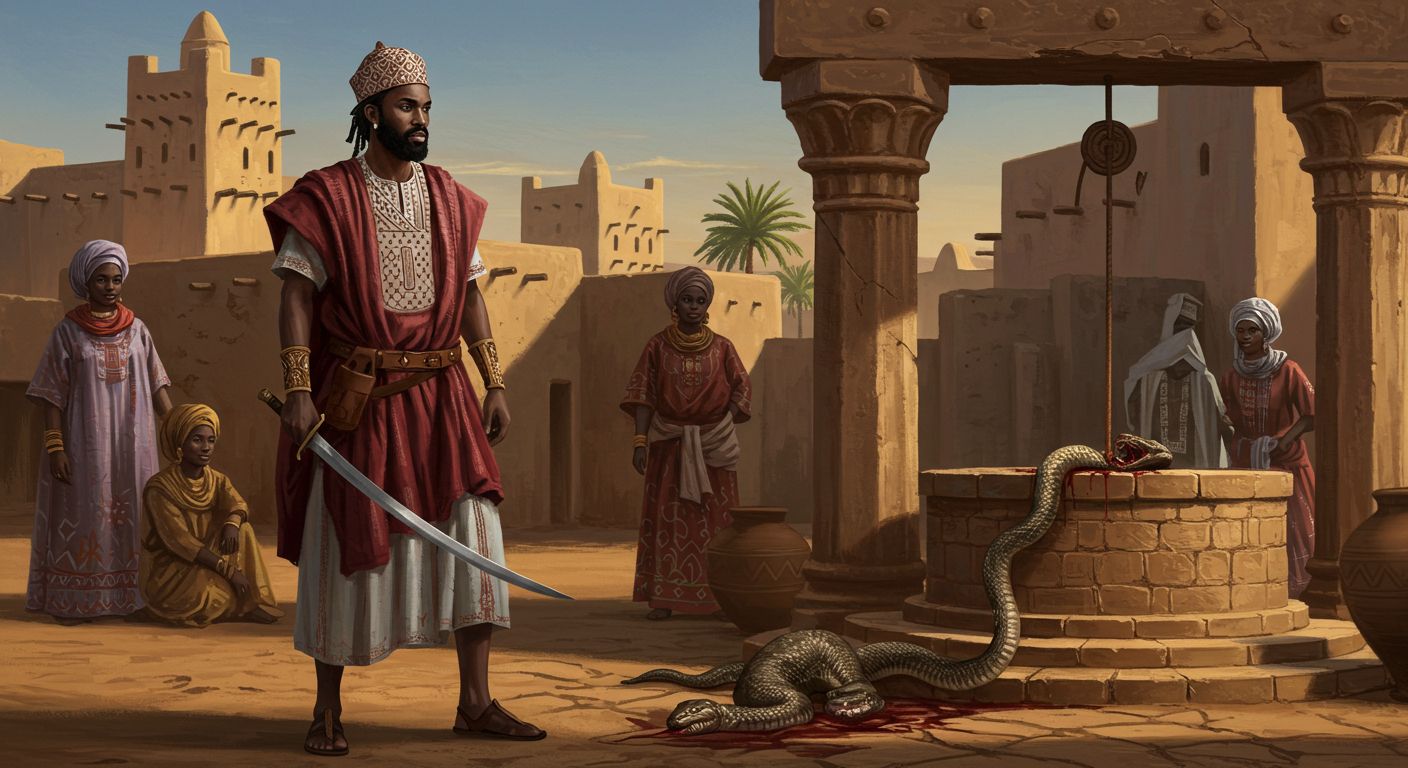Bayajida: The Legend Behind the Birth of the Hausa Kingdoms

Who Was Bayajida?
Bayajida, also spelled Abuyazidu, is the legendary founder of the Hausa Kingdoms, a cultural hero whose story forms the bedrock of Northern Nigeria’s traditional identity.
Though debated by historians, the story of Bayajida is revered across Hausa-speaking communities as both myth and memory—a tale passed down through generations, carrying themes of courage, migration, royalty, and divine destiny.
⚔️ The Journey from Baghdad to Daura
According to legend, Bayajida was a prince from Baghdad who fled conflict or betrayal in his homeland and journeyed across Africa until he arrived in Borno, and later Daura, in present-day Katsina State.
When he arrived in Daura, he discovered a town in distress. The people were unable to access water from the sacred Kusugu Well, which was guarded by a monstrous serpent named Sarki that allowed water to be drawn only once a week.
🐍 The Slaying of the Serpent
Bayajida, known for his bravery and skill, volunteered to draw water and confronted the serpent. With great courage, he slew the beast, ending the town’s suffering.
This act won him the favor of the queen of Daura, Queen Daurama, who offered him her hand in marriage. Their union became symbolic: the fusion of foreign bravery with indigenous power, and the beginning of a royal lineage.
🏰 The Birth of the Hausa Bakwai
Bayajida and Queen Daurama had a son named Bawo, who is said to have fathered six sons, each of whom founded one of the original Hausa Bakwai (Seven True Hausa States):
Daura
Kano
Katsina
Zazzau (Zaria)
Gobir
Rano
Biram
These states became the foundation of Hausa civilization, renowned for trade, scholarship, Islamic leadership, and architectural brilliance.
🪶 Historical and Cultural Significance
Though scholars suggest the story is symbolic or semi-legendary, the tale of Bayajida serves a deeper purpose in Hausa culture:
It unifies the people under a shared origin.
It legitimizes royal lineages across Northern Nigeria.
It teaches values like bravery, destiny, and leadership.
Bayajida’s sword, the symbol of his conquest, is said to be preserved in Daura, and the Kusugu Well still exists today as a revered historical site.
🌍 Legacy Across Time
The Bayajida story is still told in schools, dramatized in festivals, and remembered in oral traditions. It connects Hausa-speaking peoples across Nigeria and West Africa with a sense of shared destiny and noble roots.
It also reflects the merging of Islamic influence with indigenous African governance — a theme central to Northern Nigerian identity today.
🔚 Final Thoughts
Bayajida’s story is more than legend — it is a cultural anchor. In a world seeking identity, roots, and meaning, the tale of a foreign prince who became a people’s savior continues to inspire.
From the silent waters of the Kusugu Well to the bustling cities of Kano and Katsina, his legacy lives on — not just in stone or story, but in the spirit of a proud people.

